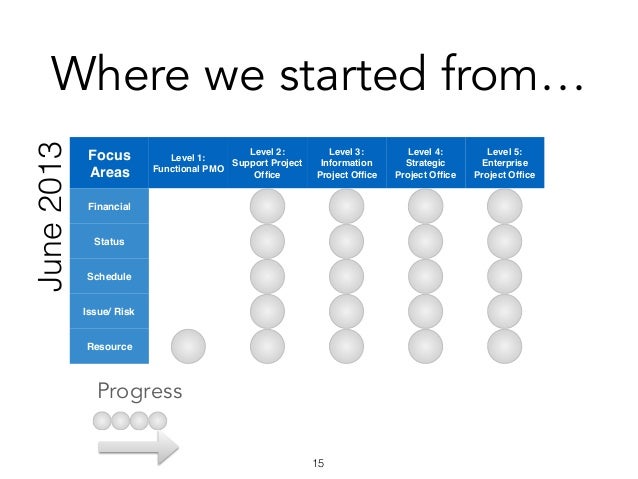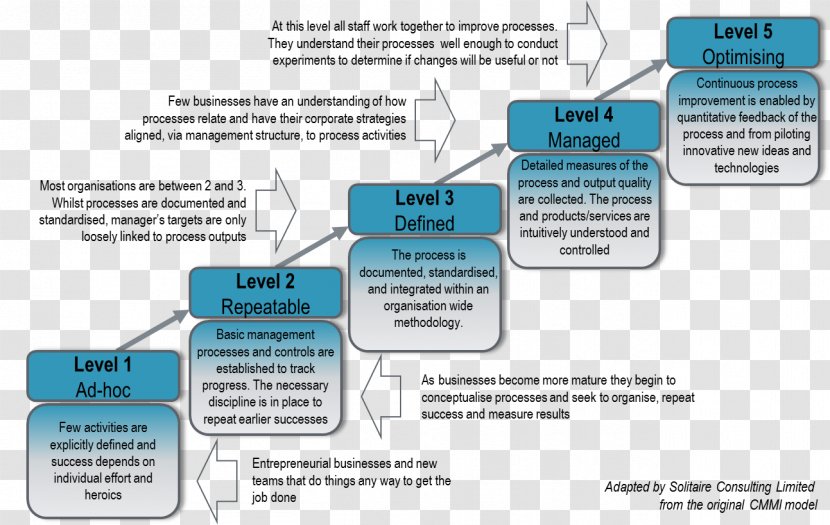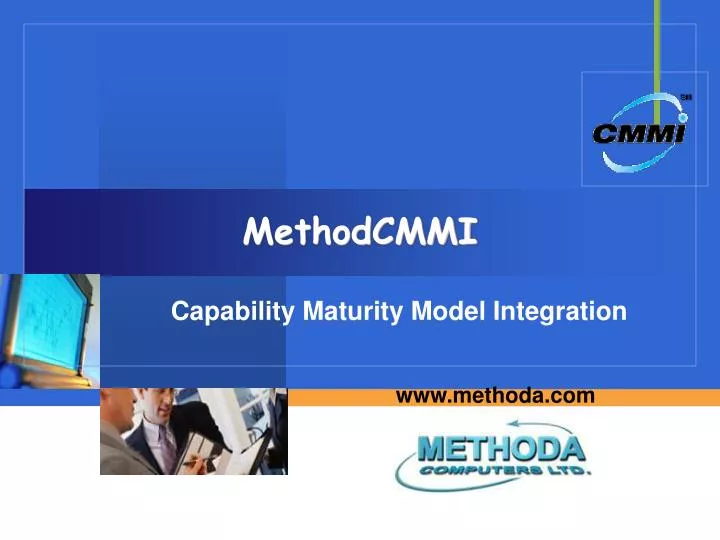OPTIMIZA follows proven and well-defined implementation and delivery methodologies that can be applied to a variety of sectors. Our vast experience in delivering technology and business transformation projects has enabled us to develop our own customized approach, which we have successfully tested and implemented in hundreds of projects across the MENA region.

Our approach guarantees the successful delivery of our services by proceeding in these phases:
The agility of our approach has enabled us to provide fast and efficient implementation of technology and consulting solutions with added benefits and rapid returns. While we ensure bridging the gap between business and technology, we believe in simplicity and adding value. Our integrated approach ensures the alignment of the methodology with the needs of diverse industries.
Throughout any technology or business implementation project, we consider the below objectives:


The Capability Maturity Model Integration (CMMI), as defined by CMMI institute, is “a capability improvement model that can be adapted to solve any performance issue at any level of the. The Capability Maturity Model Integration (CMMI) helps organizations streamline process improvement, encouraging a productive, efficient culture that decreases risks in software, product. 3.1 Capability Maturity Model Integration (CMMI®) The Capability Maturity Model Integration (CMMI®), owned by Software Engi-neering Institute (SEI), is oriented to software and systems engineering. This model probably is the most used, but with the drawback of the implementation framework to this specific sector.
- Reducing cost
- Increasing productivity
- Improving quality
The PMO is an entity within OPTIMIZA responsible for maintaining the adopted project management methodology. It acts as the sole reference for project progress and status. The PMO deploys industry standards and project management best practices.
The below diagram illustrates the framework we follow in our project management. The PMO processes cover four major project phases that are devised and deployed by all project teams. The four phases are: initiation, planning, execution, and closing.
Our PMO offers services that help organizations set up their own PMO departments.
Our PMO team includes a number of highly qualified Project Managers (PMs) and Project Coordinators (PCs) with extensive experience in managing IT projects and hands-on experience in system integration assignments and PMO operations. The PMO team manages projects, maintains processes, and offers support and training to project resources and delivery team members.
The PMO team conducts scheduled quality reviews on projects to ensure adherence to methodology and to identify process improvement opportunities.
The PMO deploys at tool developed in-house, to maintain the PMO processes, projects data and information resources. It also generates regular reports and dashboards.
PMO Services
The OPTIMIZA project management team has been involved in setting up various types of PMOs, ranging from a simple project management office to complex program management offices, project management centers of excellence, project management monitoring offices, and enterprise project management offices.
Depending on each client’s project management needs, type of business, and project management maturity, our teams coordinate with clients to determine the most suitable setup that would yield maximum value and success rates in delivering and monitoring critical projects, including those involving third-party contractors. Below are a few examples in which OPTIMIZA project teams successfully established PMO departments tailored to client needs:

This approach has been implemented by our teams for the establishment of the Arab Bank EPMO to monitor projects implemented in Jordan and throughout the Arab Bank network in the region and also for the Union Bank to monitor the progress of new strategic initiatives.
This approach has been implemented at the Social Security Corporation (SSC). The SSC has decided to adopt new strategies that have been translated into manageable initiatives. The PMO has been designed to deliver and monitor those transformation initiatives and projects.
- Set up a Project Management Monitoring Office (PMMO) based on Design, Build, Operate, and Transfer model.
This approach is utilized for the purpose of establishing a monitoring unit for ongoing projects. It determines the health of each project individually and the status of multiple projects collectively within several portfolios in a dashboard format. This monitoring tool reports to the management and/or other stakeholders as determined by the project steering committee.
Project health (status) is determined by continuously updated completion percentage compared to the planned value as well as its cost, quality, and schedule variance, in addition to the root cause of any discrepancy. It also includes reporting major risks and issues and corresponding mitigation plans. - Setup a Project Management Office as part of a business transformation.
This approach is tailored toward establishing a PMO as part of business transformation that takes on the responsibility of transforming a business by deploying and monitoring certain initiatives in support of this transformation. - PMO staff outsourcing – Simple and Complex Project Management Offices.
Our Project Management team has been involved in upgrading and running existing PMOs for organizations such as Jeddah Municipality. This approach is limited to reviewing existing Project Management capabilities, tools, and policies and upgrading them in addition to running the PMO on behalf of the client for a certain period of time while training existing staff and transferring knowledge.
The quality team is the unit responsible for ensuring that deliverable’s are reliable, meet business and technical requirements, and that adopted methodology is adhered to. The quality team members work closely with the delivery project teams, however, they are independent of the delivery team, reporting directly to the Quality manager.
The quality team is responsible for planning and carrying out the testing of applications and conducting regular audits and reviews so as to ensure that the framework is followed and also to identify process improvements opportunities.
Quality Management Framework
The diagram below depicts the quality management framework followed to test and assure the quality of OPTIMIZA’s projects.
Quality Services
- QA (Quality Assurance); a planned and systematic pattern of all actions necessary to provide confidence that an item or product conforms to requirements.
- QC (Quality Control); a series of inspections, reviews, and tests used throughout the software process to ensure each work product meets its requirements.
- CMMI (Capability Maturity Model Integration);an internal capability to adhere to industry standard practices in managing work/projects.
Quality Consulting / Outsourcing services:
- Test Management
- Quality Management
- Quality Processes Design and Process Improvement
- Quality, Process Audit
- Training for Quality disciplines
- Devising KPIs for Quality Control
- CMMI; Training, Preparation and Implementation

Optimiza can help institutes build internal CMMI capability or prepare for CMMI audit by providing the following:
- Training: CMMI Model training (support, process management, project management, engineering)
- CMMI Implementation: Diagnose and review current quality management system and identify gaps
- Plan: Determine solutions to meet CMMI required practices
- Educate: Provide training to start process improvement on various topics such as software engineering and project management
- Implement: Execute process implementation plan
- Monitor: Assist process implementation, identify and resolve process issues during implementation
OPTIMIZA adopts Capability Maturity Model Integration CMMI best practices and it was the first company in Jordan to achieve CMMI level 3 accreditation in 2011.
Cmmi Maturity Model Pmo Definition
CMMI is the most widely-accepted and adopted process-improvement approach worldwide. It provides organizations with the latest best practices for product, service development, and maintenance to enhance the quality assurance processes. Applying the CMMI model compels OPTIMIZA to commit to several instrumental procedures and assessments.
Achieving CMMI accreditation is advantageous for both clients and employees of OPTIMIZA. It improves the quality of products and services, and improves the productivity of companies by enhancing work procedures. It also promotes and reinforces company capacity to predict project schedules, achieve higher profits, and enhance risk management capability.
CMMI practices cover various categories of work practices in software engineering, project management, process management, and support. Applying CMMI best practices guarantees improvement in the quality of delivered products and services and in schedule accuracy. Moreover, it allows OPTIMIZA to ensure a higher level of client satisfaction..
Pmo Maturity Model Pmi
OPTIMIZA has evolved its own software development framework, the OPTIMIZA Development Framework (ODF), integrating the accumulated experience of its various software engineering teams that have been helping to build software solutions for various clients in the region over the last decade.